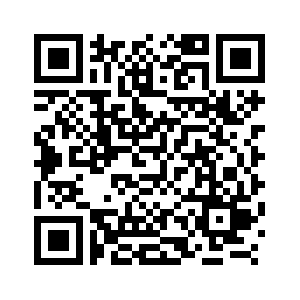Feature: Finding hope in mercy amid Eid's scarce sacrifices in South Lebanon
Source: Xinhua
Editor: huaxia
2025-06-06 06:03:15
BEIRUT, June 5 (Xinhua) -- At the entrance of Khan Market in South Lebanon, Majed al Mohammad stands quietly among the pens of bleating sheep.
Majed, a father of three and a government employee in his fifties, eyed the price tags on the Eid al-Adha livestock with visible defeat, his hand tightening around his nearly empty wallet.
"Years ago, we used to slaughter more than one animal," said Majed, shaking his head. "Now, I can barely afford half a kilo of meat."
He gestured toward a sheep priced at 250 U.S. dollars -- more than half his monthly salary. "What's the meaning of Eid when you can't even provide for your children?" he asked. "The Israeli war wiped out everything we had -- our homes, our businesses. Now survival is the only thing we can afford."
For many families across South Lebanon, Eid al-Adha, traditionally a time of generosity and festivity, has become a stark reminder of loss and hardship. The soaring prices of feed and medicine, and the lingering economic crisis, have made sacrifices a luxury out of reach for most.
But amid the despair, small rays of humanity break through.
Livestock trader Farid Jaber explained how the demand for sacrificial animals has plummeted.
"A sheep is worth its weight in gold these days," he said. "Most people, especially the displaced, simply can't afford it."
Instead of just watching families walk away empty-handed, Jaber chose a different path. "This year, I'm donating two sheep to needy families. No one should spend Eid without at least a drop of joy."
In nearby Marjayoun, butcher Khalil Sweid also stepped in to ease the pain. He halved the price of meat -- offering lamb at 6 U.S. dollars per kg instead of the usual 12 U.S. dollars -- so that struggling families could bring something to the table.
"This isn't a season for profit," said Sweid, with his hands busy slicing meat for waiting customers. "This is a season of mercy. When I see mothers clutching meat as if they're holding Eid itself, I know I've done something right."
For Dalal Omar, an elderly woman waiting patiently in line outside his shop, the gesture means more than just cheaper food. "What this butcher is doing is bigger than a discount," she said. "It's a reminder that compassion still exists in a country drowning in inflation."
Other grassroots efforts are also helping restore fragments of joy. In the war-ravaged village of Wazzani, the humanitarian organization Union of Relief and Development Association organized an Eid event among the rubble, offering gifts, haircuts, and a moment of normalcy for the children.
Rania Jaber, a volunteer with the humanitarian organization Basmat Al Eid, said her team distributed new clothes and toys to hundreds of children in villages hardest hit by both war and economic collapse. "Eid clothes have become a distant dream for many," she said. "We wanted to give the kids a reason to smile, even if just for a day."
"These efforts won't replace public policies. But a new outfit can be a symbol of dignity-for the child, for the mother, and for a father struggling to hold on to hope," she added.
The cost of sacrifices, Jaber noted, has risen by 80 percent this year, and only about 12 percent of families who used to observe the tradition could afford to do so now.
Livestock trader Salem Amer confirms the trend. "People who used to buy 15 sheep now buy just one, if they buy any at all," he says. Prices have surged to between 250 and 400 U.S. dollars per sheep, while the minimum monthly wage remains under 300 U.S. dollars.
The weight of this crisis is especially heavy in South Lebanon, where Israeli bombings during the recent conflict flattened homes and dreams alike.
"This Eid is different," says social worker Nidal Issa. "It's not just about what people lost. It's about how the rituals, traditions, even the smiles, have changed. For many, Eid has become a reminder of what's missing."
Since 2019, Lebanon has been grappling with compounded crises -- financial collapse, political instability, the devaluation of the Lebanese pound, and soaring inflation, which has driven the prices of basic goods up by 74 percent. In a country where the survival of many has become a daily battle, the spirit of Eid hangs on by threads of goodwill and small, defiant acts of kindness. ■



